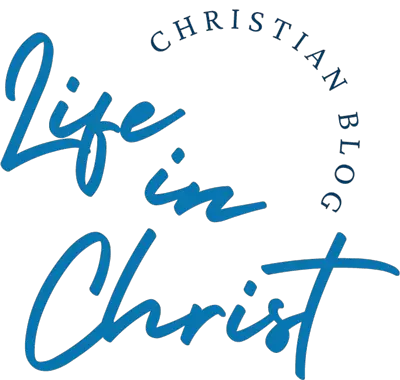The anointing of the sick is a profound practice in the Church that provides healing, comfort, and peace to those suffering from serious illness.
This holy practice has ancient roots tracing back to Scripture and the ministry of Jesus. When administered with faith, it has the power to bring spiritual and physical healing.
Understanding the Anointing of the Sick
The anointing of the sick is one of the practices of the Church. It is sometimes referred to as “extreme unction” or the “last rites,” however, it can be administered to those facing serious illness or surgery.
This rite finds its biblical foundation in James 5:14-15 which says,
“Is anyone among you sick? Let them call the elders of the church to pray over them and anoint them with oil in the name of the Lord. And the prayer offered in faith will make the sick person well; the Lord will raise them up. If they have sinned, they will be forgiven.”
biblegateway.com
From these verses, we see that the practice involves calling in church elders to anoint the sick person with consecrated oil and offer fervent prayers for their healing. It is accompanied with confession of sin because sin, sickness, and the need for forgiveness are often intertwined.
The Healing Power of Anointing of The Sick
One of the most magnificent truths about Jesus Christ is that during his earthly ministry “He healed all who were sick” (Matthew 8:16). Over and over the Gospels testify that “all were healed.” Jesus has profound compassion for the sick and suffering. His healing power on earth points to the perfect wholeness we will experience in eternity.
When Jesus sent out his disciples he commanded them “Heal the sick” (Luke 10:9). As his followers today, we can call upon the same healing power when we pray the prayer of faith over those who are ailing.
The anointing oil itself has no magical properties but represents the blessing of the Holy Spirit who can bring miraculous healing according to God’s will. We must pray in expectant faith, believing that God is able to heal.
While not everyone receives physical healing the anointing of the sick brings spiritual comfort and strength. God can also work emotional and psychological healing, restoring peace and dissipating anxiety as we entrust our cares to Christ.
Even when someone is near death, we should not hesitate to pray for healing, just as Elijah prayed fervently for the widow’s son to be raised back to life after he had passed away (1 Kings 17:17-24). We serve the same God who can restore health against impossible odds.
Anointing The Sick in the Church Today
The anointing of the sick can be administered at any age to those facing chronic illness, disease, or upcoming surgery.
When someone is seriously ill they should call their minister and request this prayer. It is ideally received when one is still fully conscious. The rite involves laying hands on the person, anointing them with holy oil on the forehead, and praying. Holy communion should also be given to the sick.
We should not wait until the last minute but ask for anointing as soon as possible. Multiple anointings can be performed as long as the condition persists or worsens. The prayer can be administered in the church, hospital room, or even at home.
Along with praying for physical healing, the anointing of the sick also brings strength, peace, reconciliation, and preparation for passing into eternal life if death approaches.
Who Can Receive Anointing of the Sick?
Anointing of the sick is intended for any member of the Church whose health has begun to seriously deteriorate. It can be received by:
- Those facing major surgery, especially when the risk of death exists.
- Elderly people who have become notably weakened.
- Those with potentially fatal illnesses or conditions.
- Those suffering chronic disease or long-term debilitating sickness.
- Persons about to undergo invasive medical testing or treatment.
Anointing should also be administered when symptoms of an illness become aggravated or enter a more dangerous phase. Even non-believers can receive anointing if they request it in faith.
Key Takeaways
- The anointing of the sick is a sacred ritual to provide grace and healing to those suffering from illness.
- It has ancient roots in Scripture and the practice of the early church.
- When done in faith, it can bring emotional, spiritual, and physical healing.
- The elderly declining due to age can also receive this sacrament.
- It’s ideally received while conscious and able to pray along. It can be given multiple times if needed.
- Anointing brings power to endure pain, peace in anxiety, and the comfort of God’s presence.
Conclusion
The anointing of the sick is a treasure of the Church directly instituted by Christ to bestow grace and strength on those afflicted by illness. When administered with expectant faith grounded in the promises of Scripture, this holy sacrament offers the sure hope of God’s mercy and healing power.
Frequently Asked Questions
Q. What is anointing of the sick?
A. Anointing of the sick is a sacred rite where a sick person is anointed with holy oil and prayed over for healing and grace. It is based on James 5:14-15 in the Bible and has been practiced for centuries.
Q. When should someone receive anointing of the sick?
A. Anointing should be received in the early stages of an illness at a critical phase, before major surgery, or when old age significantly weakens a person. It’s also important when one “begins to be in danger of death.”
Q. Who can receive this sacrament?
A. Any member of the Church who has begun to decline in health can receive this sacrament. It can be given to the elderly, chronically ill, those facing surgery, or patients with life-threatening sickness.
Q. What happens during the sacrament?
A. The minister lays hands on the person, anoints their forehead and palms with holy oil, and prays asking for God’s grace and healing through the Holy Spirit. The sick person may join in prayer.
Q. Does the oil have special powers?
A. The anointing oil itself has no magical power, it’s simply a symbol of the Holy Spirit invoked through prayer. The faith activates God’s grace to heal.
Q. What grace does anointing of the sick give?
A. Strength in illness, freedom from anxiety, full recovery, and forgiveness of sins.
Q. Should it only be done as a “last rite”?
A. No, anointing of the sick should be done long before death is imminent. It can be received multiple times by those suffering from chronic or serious illnesses.
Q. What is the significance of anointing someone with oil?
A. The practice of anointing with oil holds great importance in the Christian faith. It is believed that anointing with oil symbolizes a consecration or setting apart for a specific purpose, such as receiving the holy anointing of the Lord.
Q. Is there a specific prayer that can save someone?
A. According to scripture, the prayer of faith will save, heal, or restore a person. It is believed that when one prays with faith, seeking God’s intervention and guidance, miraculous healing or salvation can take place.
Q. How does the act of forgiveness relate to prayer?
A. Forgiveness is an integral part of prayer. It is encouraged to forgive others and seek forgiveness ourselves before coming to God in prayer. The act of forgiveness allows us to approach God with a clean heart and a clear conscience.
Q. What is the significance of the “prayer of the righteous”?
A. The Bible mentions that the “prayer of the righteous” is powerful and effective. When individuals who are righteous and have a close relationship with God pray, their prayers carry a greater weight and are more likely to be answered.
Q. How does the concept of holy communion tie into prayer?
A. Holy communion is often seen as an act of prayer and remembrance. It is a symbolic representation of the body and blood of Jesus Christ. Participating in holy communion allows believers to express their faith, seek the presence of the Lord, and partake in his grace. Many Christians have received healing after taking holy communion.
Q. Does prayer have any effect on one’s health?
A. Prayer has been known to have positive benefits on one’s health. The act of praying can provide comfort, reduce stress levels, and offer a sense of peace and well-being. It is believed to contribute to the overall health of the sick and aid in their recovery.
Q. How can prayer aid those who are at the point of death?
A. Praying for individuals who are at the point of death can bring comfort and spiritual support. It allows the person to surrender their fears, find solace in the Lord’s presence, and prepare for the journey ahead.






